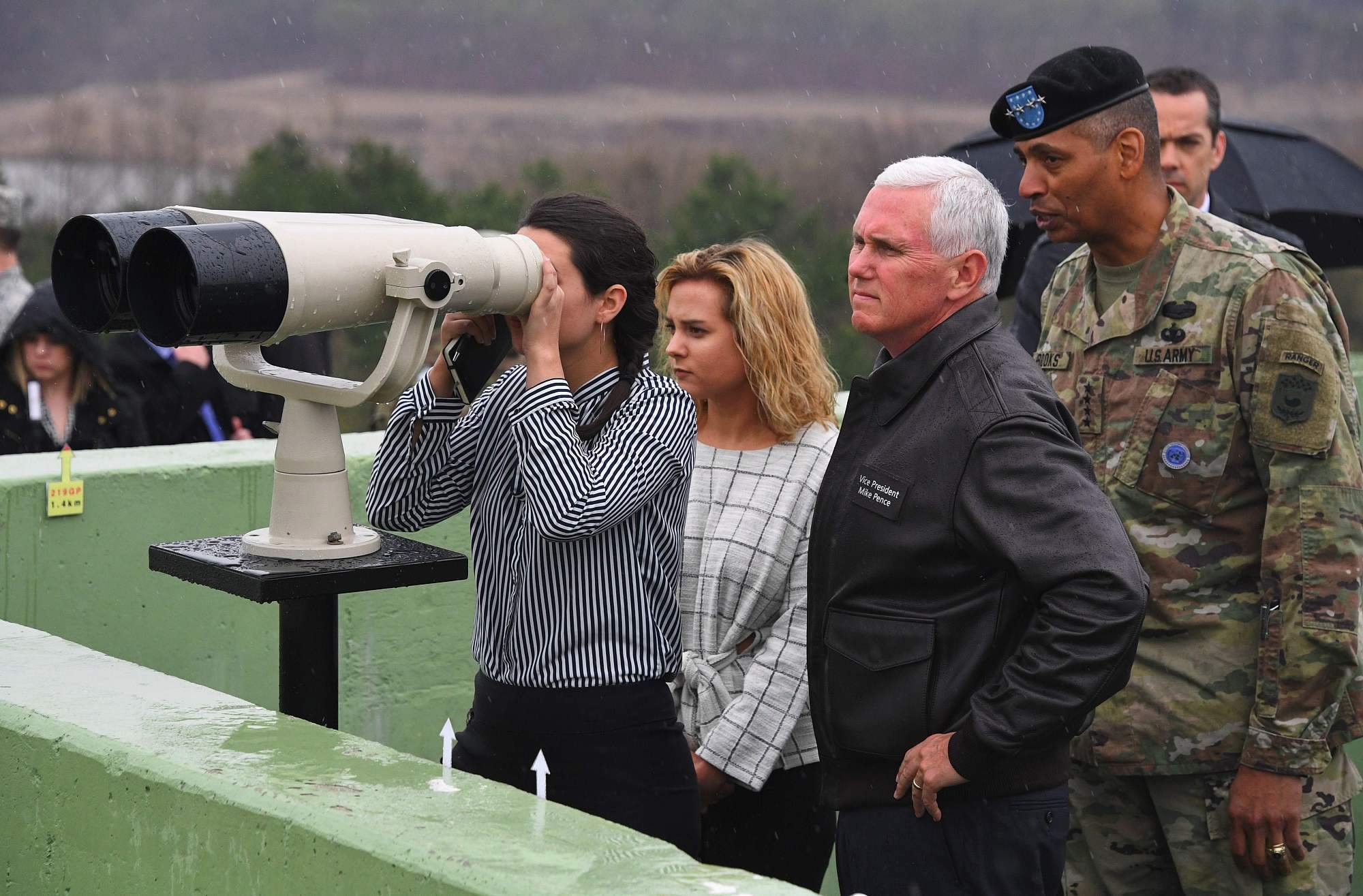US Vice President Mike Pence reaffirmed Washington’s "ironclad" alliance with Seoul and warned of punitive actions on the DPRK during his three-day trip to South Korea amid soaring tensions on the Korean Peninsula.
Pence arrived in South Korea on Sunday as part of a 10-day trip to Asia. He visited a US base near the Demilitarized Zone earlier on Monday morning before he held talks and a press conference with the acting South Korean president Hwang Kyo-ahn.
undefined
“Impatience” with the DPRK
Pence's arrival was on the same day as a missile test by the DPRK, which the US and South Korea said was a failure.
Pence has called the DPRK’s failed missile test a “provocation.”
During the press conference with Hwang, Pence said the “the era of strategic patience” toward the DPRK was over, adding that “all options are on the table” for addressing the DPRK’s threats. He said the US wants peaceful means for the denuclearization of the peninsula.

Pence arrived at the gateway to the Demilitarised Zone dividing the two Koreas, in a show of US resolve a day after the DPRK failed in its attempt to test another missile./ CFP Photo
The US and South Korea have worked together since 1992 to convince the DPRK to give up its nuclear program through peaceful means, Pence said.
He said these efforts have not worked, citing the DPRK’s two nuclear tests and multiple ballistic missile test-launches in the past 18 months.
“Strategic patience” refers to a US policy on the DPRK advocated by the Obama administration and other past presidents.
Pyongyang carried out its fourth and fifth nuclear detonations in January and September last year respectively. After the January atomic bomb test, the country launched a long-range rocket that put a satellite into orbit.
The rocket launch is seen by South Korea and the US as a disguised test of banned ballistic missile technology. The DPRK is banned from testing such technology under UN Security Council resolutions.
He issued a warning against the DPRK, saying Pyongyang should not underestimate the resolve of US President Donald Trump and the power of US forces stationed on the peninsula by conducting further provocations.
"We are with you 100%"
The failed missile launch by the DPRK came amid rising tensions on the peninsula, which were caused by the rare re-routing of a US aircraft carrier toward the West Pacific. The USS Carl Vinson aircraft carrier and its accompanying warships were sent to waters near the peninsula.
Pence's visit to South Korea comes as the country prepares for an election next month following the ouster of former president Park Geun-hye.
"Whatever change happens in your elections the commitment of the US to South Korea's safety and security will remain unchanged," Pence said.

US Vice President Mike Pence speaks during an Easter fellowship dinner at a military base in Seoul, South Korea, April 16, 2017./ CFP Photo
Deployment of THAAD
During the press conference, the two parties also agreed on the early deployment of the controversial Terminal High Altitude Area Defense (THAAD) anti-missile system.
Seoul and Washington agreed in July last year to install one THAAD battery in southeastern South Korea. Two mobile launchers and other parts of THAAD were delivered last month to a US military base in South Korea. Pence described the THAAD deployment as a "defensive measure," but it caused strong oppositions from countries in the region, including China and Russia, which said the defense system would upset the strategic balance in the region.
This is Pence’s first tour to Asia as vice president; he will then leave for Japan, Indonesia and Australia on Wednesday to continue his 10-day visit.









